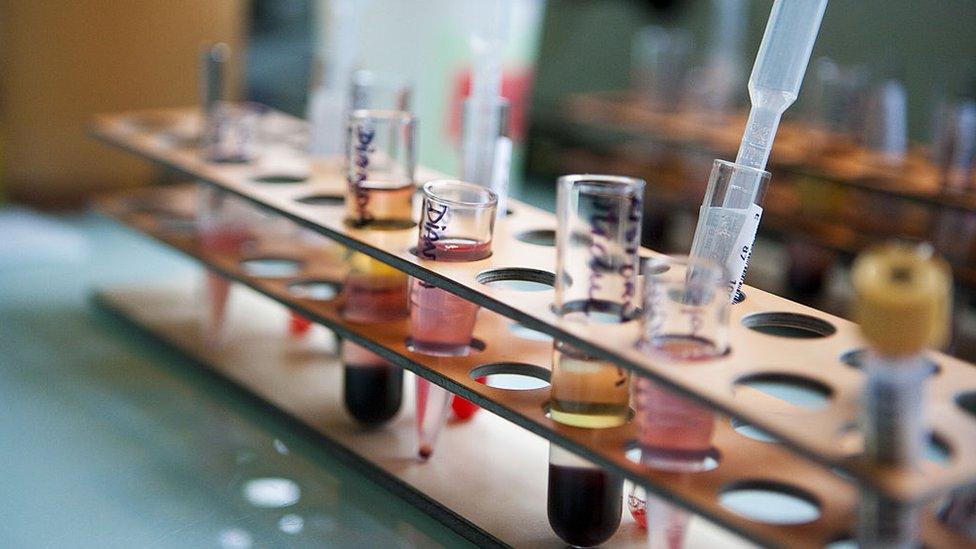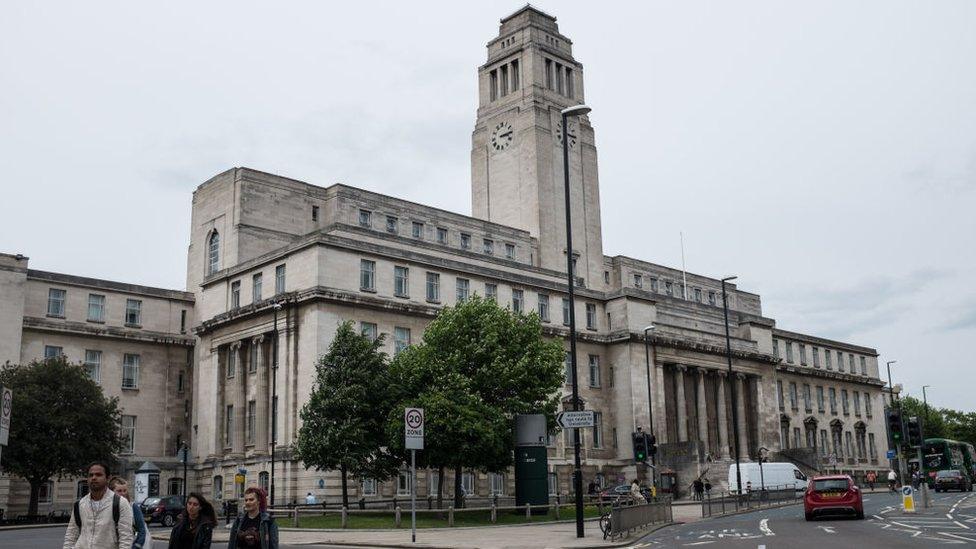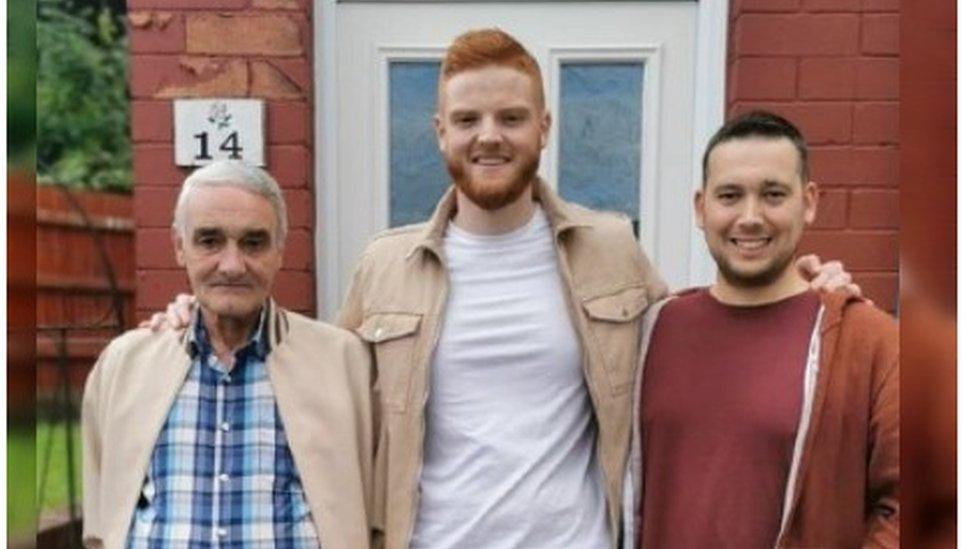Covid leads to University of Leeds bone marrow donor shortage
- Published

Younger donors lead to better survival rates in patients, according to the Anthony Nolan Trust
A severe shortage of bone marrow donors due to Covid-19 has led a student-run charity to seek donors online.
Leeds Marrow said it currently had fewer than 50 donors at the University of Leeds on the stem cell register, compared to 950 by December last year.
Potential donors use a cheek swab to check marrow-type, but coronavirus regulations meant it was not possible.
The charity, part of the Antony Nolan Trust, aims to recruit donors aged 16-30.
Matthew Mellor, the charity's president and a pharmacology student, said taking cheek samples was not "very Covid-secure as it is face-to-face".
Using the online link would mean a potential donor, external was sent a kit through the post.
Despite a shortage of donors at the university "people are still being diagnosed at the same rate", Mr Mellor said.
"If you go on to the stem cell register you have an extremely low chance of being called.
"But if you do get called you are saving someone's life who has bone cancer."

Matthew Mellor said coronavirus restrictions were making it hard to collect cheek samples from students
Diseases such as some forms of leukaemia stop bone marrow working properly. For these patients, the best hope of recovery is to receive a bone marrow transplant.
Although people of any age can donate bone marrow, younger donors lead to better survival rates in patients, according to the Anthony Nolan Trust.
The trust said 90% of people donate via their bloodstream and 10% have their stem cells collected via their bone marrow while under general anaesthetic.

Follow BBC Yorkshire on Facebook, external, Twitter, external and Instagram, external. Send your story ideas to yorkslincs.news@bbc.co.uk or send video here.
- Published19 September 2020
